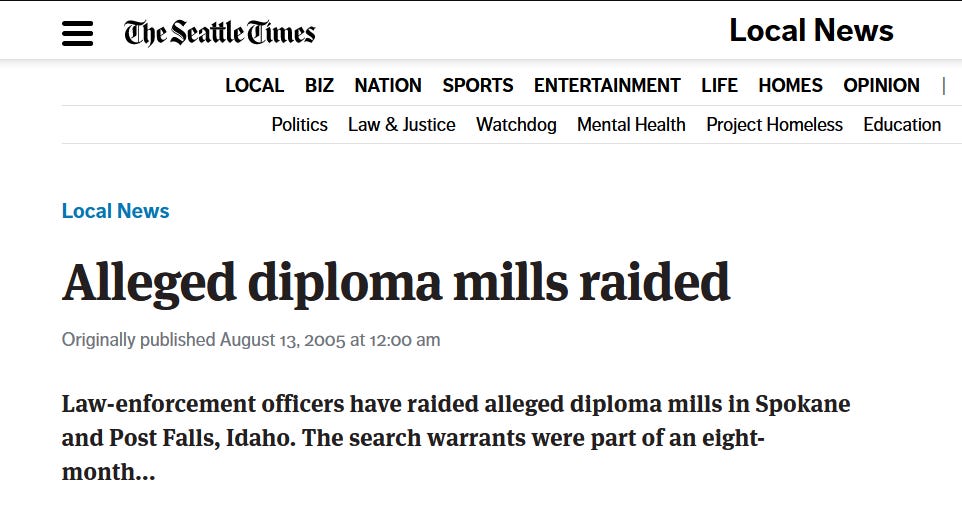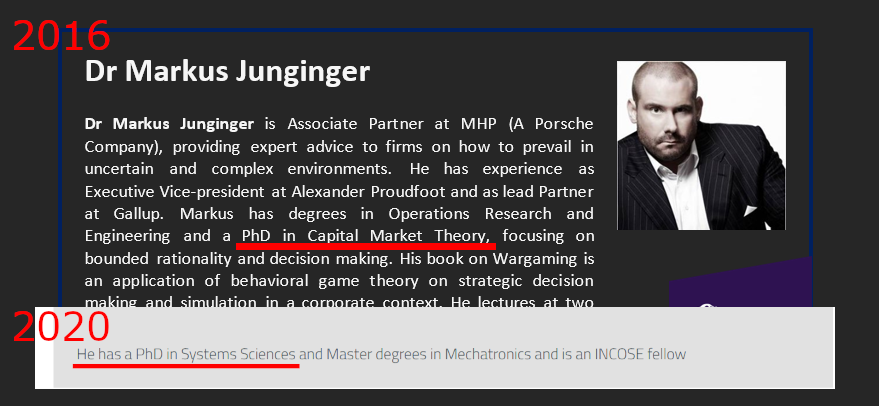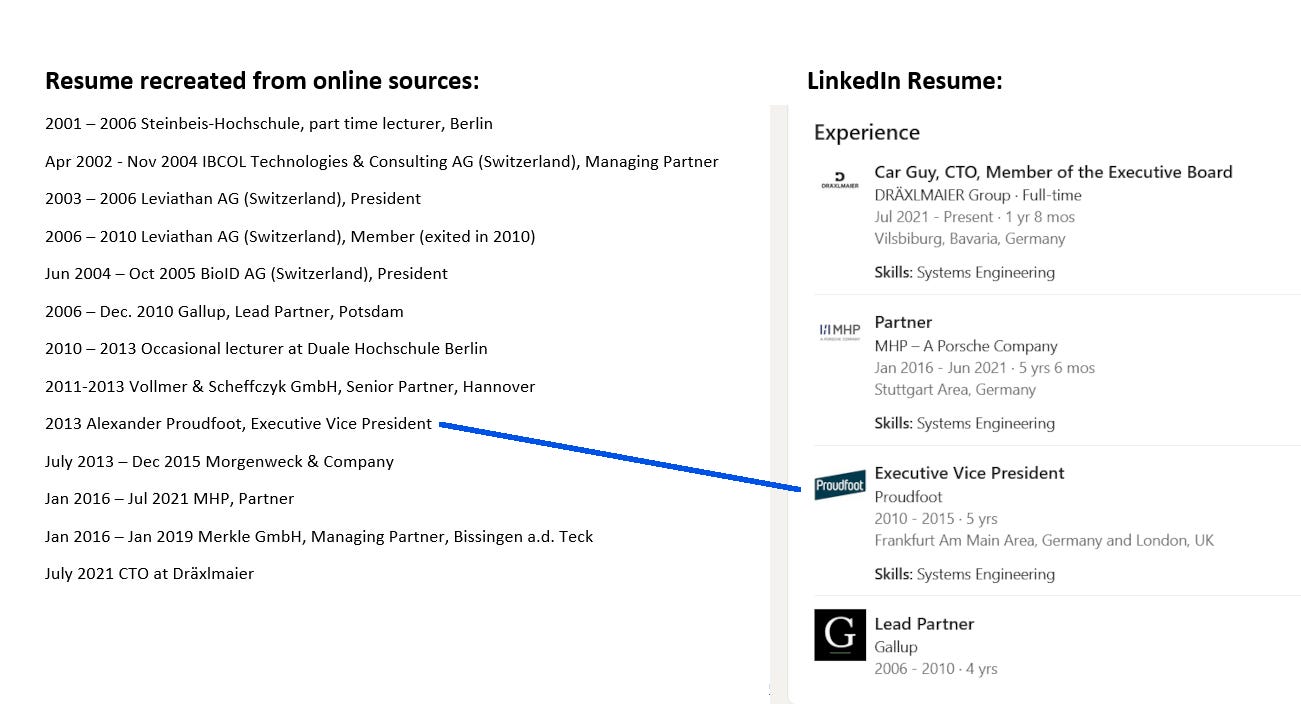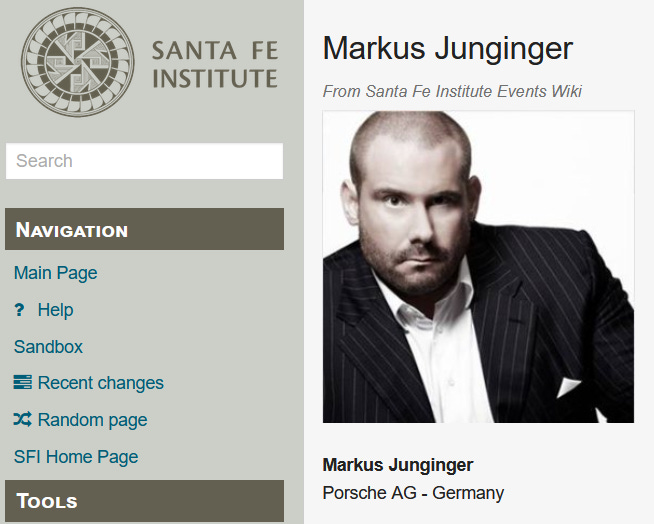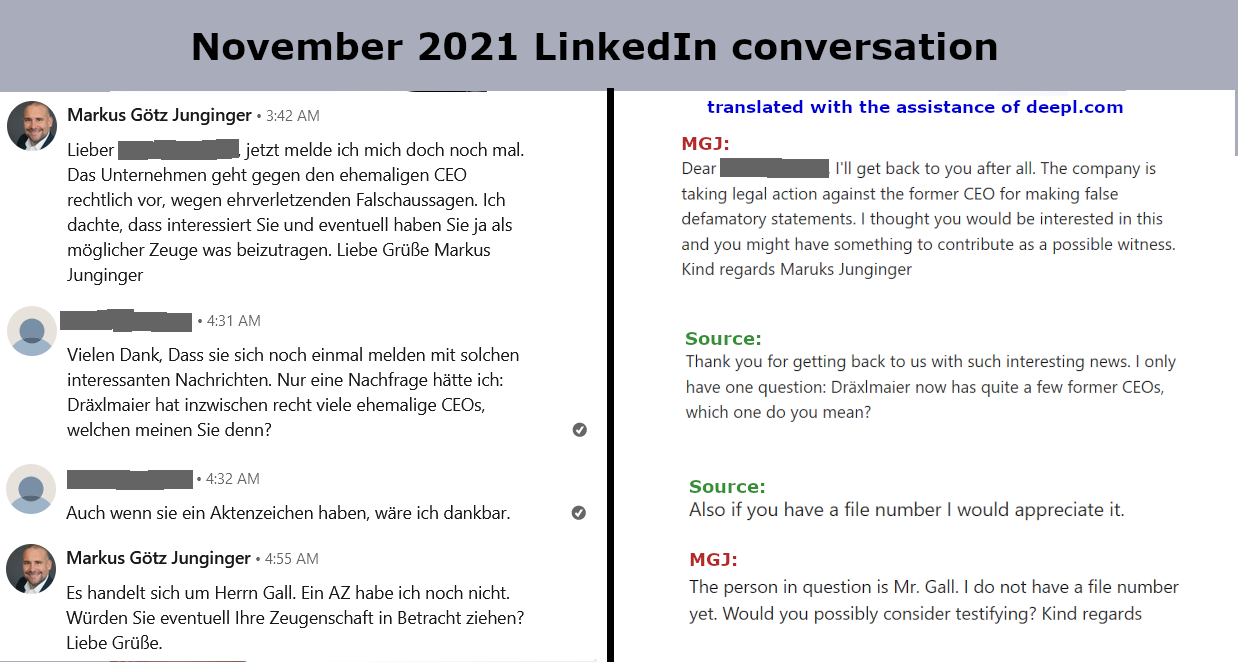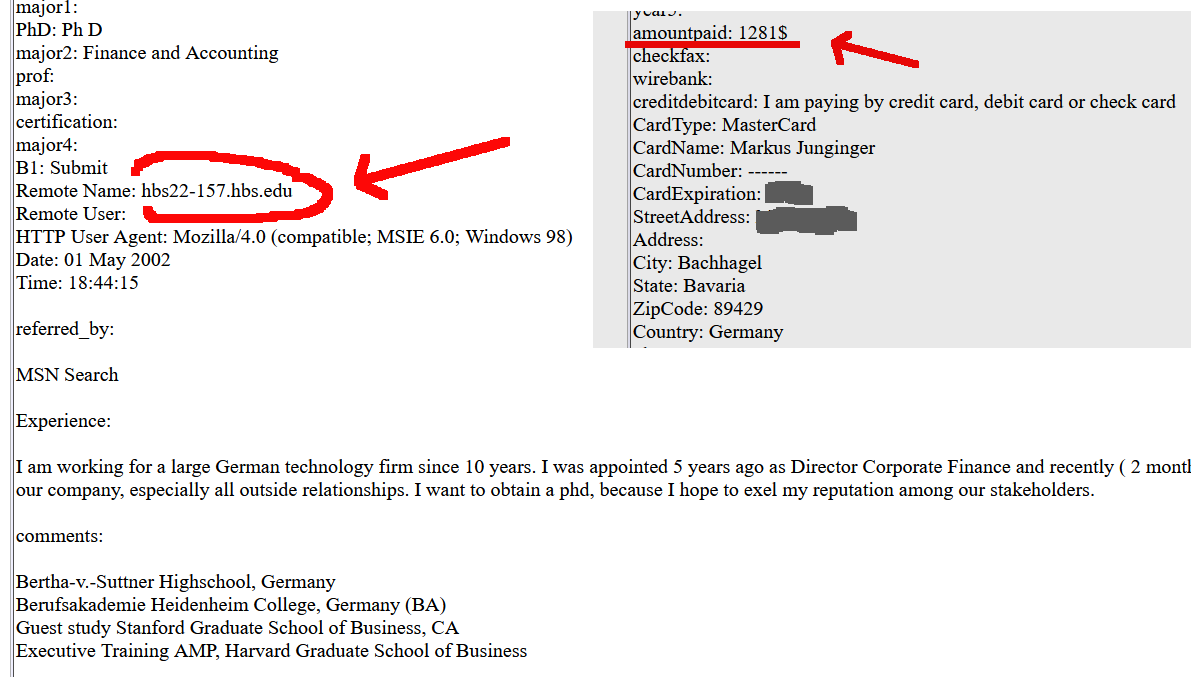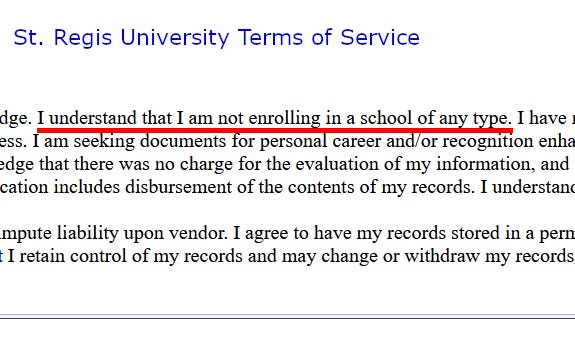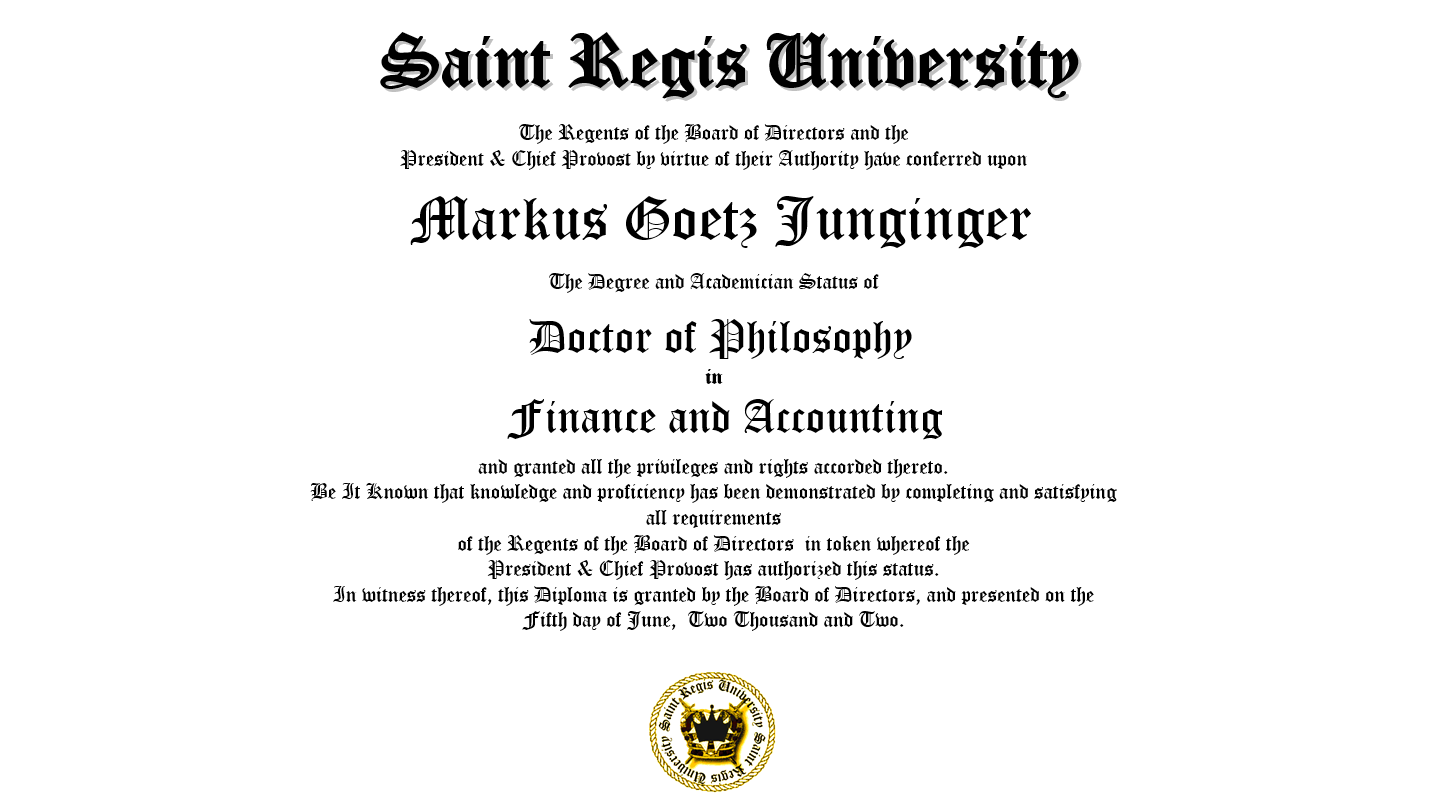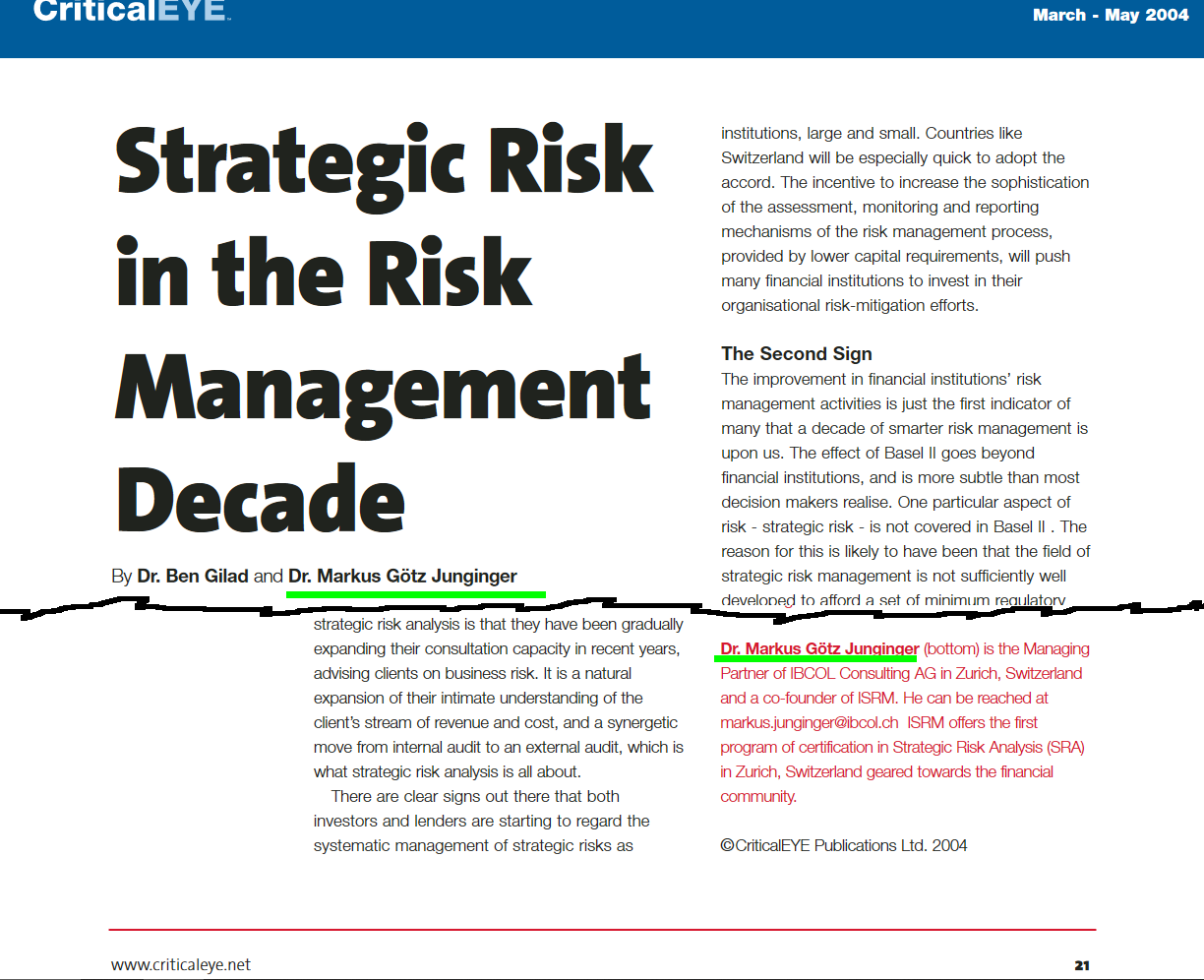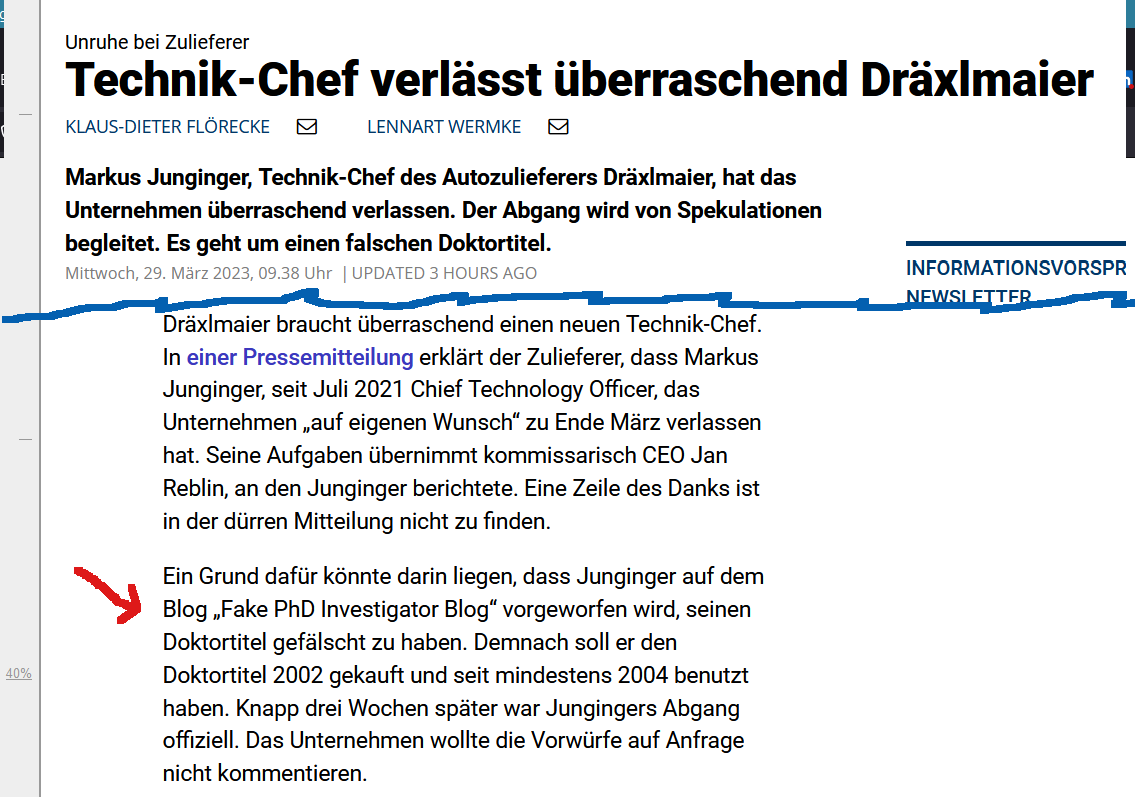Chief Technology Officer with a fake PhD
How a diploma mill bust in 2005 got someone found out 18 years later
This is the long version OSINT write-up with detailed steps and narrative on how the information was collected. For the shorter version featuring only the results, please see the video. Updates at the end of this post. A separate update post is available here.
So I am Fake PhD Investigator. One day I thought to myself I should live up to my name and investigate some fake PhDs. I went ahead and googled that and some related terms. I don’t recall exactly which search term got me to the news article but I found an interesting story from back in 2005 (link). In the wild American West, a diploma mill was churning out fake degrees at a rapid pace, selling them to buyers across the world. There were plenty of efforts to make it look somewhat legit. They invented their own university and accreditation agency. There was a phone number for people to verify the university and degrees and they even issued convincing-looking transcripts. This was a few years after 9/11 when people were still worried about terrorist sleeper cells infiltrating the country. The Secret Service and the US Postal Inspection Service got involved and investigated for 8 long months before they kicked down the door of this outfit and arrested eight people who ended up doing hard time in federal prison for mail fraud, wire fraud, and some related charges.
Then in 2008 a local newspaper got a hold of the list of buyers and published it online (link). People got busted for using fake degrees but the story made little waves abroad where many of the buyers were located. The list didn’t stay online and life went on.
The old list is still on archive.org, but was anyone still using their phony degree despite the publicity the fake Saint Regis University had received back then? The list had roughly 10,000 names on it. Googling the names according to the alphabetized order it became clear that analyzing the results would take far too long. So I focused on places where this would be a big deal: Australia, UK, USA, Canada, France, Germany, Belgium and a few others. The Germans are a bit more hierarchical when it comes to work, with titles being especially important, so this would ruffle some feathers there. Googling scores of names, it became clear that the vast majority were not advertising their degrees. Among those who were, many are low-level government workers, retired and dead people, a psychic, a truck driver and a few eclectic others.
One person stood out as he had just been hired as Chief Technology Officer at Dräxlmaier, a premiere automobile parts supplier with 75,000 employees and $5 billion in annual revenue. This person was “Dr.” Markus Goetz Junginger. The database from the federal prosecutor’s office listed him as a confirmed buyer of a fake PhD. He was still using this title everywhere. Busted.
This is where the real fun started: A full and detailed background check on this guy. Annoyingly, he has co-authored a book which is advertised and for sale everywhere online. Time to use the minus sign on Google to exclude this from my searches.
Turns out, he has at least three namesakes, two of whom have a PhD and both also work in the technology sector. Their PhDs check out as legit so we’ll be using this guy’s full name Markus Götz Junginger, in the hopes that the others don’t receive annoying inquiries for years to come.
One can get very specific with queries. Adding a timeframe restriction also helps to cut down the results to those of interest.
First, a check to see if he has gotten a PhD from elsewhere will be conducted. Not that it really matters at this point but those aren’t usually hard to find. Dissertation databases come up completely empty on Markus Junginger (worldcat.org is the first go-to for that). PhD dissertations are meticulously catalogued and Markus Götz Junginger lists four different schools on his LinkedIn profile. Not only is there not a dissertation in the dissertation databases of those four schools, there also aren’t any academic publications by him at all. All we have is that fake PhD that he most positively bought from a diploma mill (more details on that later). And he claims a PhD in capital market theory at one time. And then at a conference on systems science he suddenly has his PhD in Systems Sciences. Isn’t that convenient. Big red flag there.
As a general framework, it is useful to create a timeline. What has he done and when. This helps to sort the information and also determine by the process of elimination if someone would have had time to pursue a PhD. At this point I still thought it was going to be a short and decisive search and just made a short table in MS Word to sort the type of information and its source.
Thinking back, Hunchly would have been useful from the get-go to complement the investigation. In another complex investigation I have used an interactive online timeline maker to track a person’s whereabouts. And I have also found padlet.com to be useful to organize a larger collaborative investigation as a dump-and-organize documentation. They have a great feature to download everything into a single pdf.
The background search is very much an iterative loop. The initial step is to look for information (emails, business names, addresses, associates, phone numbers), then to extract the relevant info on work and academic history, get more information and search for that in Google, Bing, breach databases, social media, company registries, WHOIS website info, professional accreditation agencies, etc. and repeat the process.
For Markus Götz Junginger, that was a lot of information. For example, seven email addresses and four former passwords were retrieved. One of the work email addresses from his former employer Gallup had a password associated with it that is a female first name. The obvious inference is that he may have had a relationship with someone of that name at Gallup. Looking through archive.org and looking at gallup.de and and also at LinkedIn profiles that list Gallup as the employer at the time he worked there, the search finds two people with that first name that worked there at the same time as Junginger. These would be persons that could potentially be interviewed about his past.
Eventually an arounddeal profile of his pops up in the searches (link). This appears to be information scraped from LinkedIn. Luckily for me, it is OLD scraped information and it lists him as a senior partner at a firm that is missing from his current LinkedIn profile. Although the archived website of the employer from that time doesn’t show his name.
In a similar vein, another search reveals that he was promoted as starting a job at another company that is also not on his current LinkedIn profile. (link)
A timeline comparison of his re-created employment and entrepreneurial activities with his LinkedIn resume shows major discrepancies and appears to show that he may be concealing his employment at the companies no longer listed on his LinkedIn page (link).
One may reasonably suspect that something was not alright with employment at these companies. I get very curious, step outside of OSINT, and make contact with some folks that worked at one of the companies. They refer me to someone else and I end up having a 30-minute conversation with a former associate of Markus Götz Junginger. The details are quite explosive. He allegedly diverted client payments at one of these firms into his own personal bank account. And allegedly regularly sold confidential client leads to a competitor for a high figure. The person goes on to say that Junginger was sued by at least three of his former employers for fraud of some sort or the other. When he was found out, he left the company saying he was suffering from an advanced terminal cancer illness and had not much longer to live.
Of course I love this because he is still alive and the court cases - with their accusations of corporate espionage - would leave quite the paper trail. But then a barrier appears: German court records are not public like that and I don’t have any German lawyer friends that may be able to check those databases. This part will have to be left for someone else to find.
Nevertheless, the information comes from a former workplace of his and could have been gained by his current employer Dräxlmaier if they had cared enough to have a detailed background check done. But instead they just accepted the employment history of someone in their C-level unquestioningly. How that happened will probably be investigated soon.
A few other claims begged to be fact-checked: At a talk he gave in 2011 he seems to have promoted himself as professor. (link) When in fact he only lectured part-time at two private colleges.
In 2017 he attended a seminar at the Santa Fe Institute (link). He claimed to be employed at Porsche AG. He was never employed there and hasn’t made the claim elsewhere.
He also prominently claims to be an INCOSE fellow (link). INCOSE is the International Council on Systems Engineering. It has 20,000 members and a precious few are awarded fellowship. Unfortunately for Mr. Junginger, the fellows are all listed prominently on its website and he is most definitely not one of them. (link)
At this point the inconsistencies in his resume are glaring, and he appears to be more of a serial fraudster with criminal tendencies. It is a proper crime in Germany to claim a degree one has not earned, called title fraud. Sometimes hard to prove unless the person used their unearned title in official state documents. So I check the German company registry (link). I find an old company of his, the Junginger Consulting UG and a more recent entry at the DEE Dräxlmaier Elektrik- und Elektroniksysteme GmbH, where he also used the title of “Dr.” And he also used the fake title when he was in the German company registry with Gallup. So there appears to be sufficient evidence of using a fraudulent title in official documentation over an extended period of time.
With this overwhelming evidence someone contacted Mr. Junginger on LinkedIn to confront him about his lack of a PhD. In the bizarre exchange he asked the source to be a witness and then claimed that Dräxlmaier was pursuing criminal charges against his predecessor Dr. Martin Gall. This appears to be the person who brought him on board at Dräxlmaier and he is throwing him under the bus first chance he gets in an attempt to distract from his degree fraud. In any case, he never denies the fake PhD.
Shortly after this exchange, his “Dr.” disappeared from in front of his name on LinkedIn, the Santa Fe Institute profile of his disappeared, his arounddeal profile was removed, and his name was removed from the Swiss company registry moneyhouse.ch
The case goes unpublished after this due to unforeseen circumstances. Many months later I shared the details of my investigation with fellow OSINT enthusiasts. This led to more detailed searches on the diploma mill and I come across a name of someone largely responsible for the investigation of the diploma mill bust: US-based physics professor George Gollin (link). He has specific insights and a gold mine of documents that were seized by law enforcement at the time: copies of Markus Goetz Junginger’s correspondence with the diploma mill and his fake certificates. Crucial for verification and evidence: The T-mobile email address used in the correspondence and used to purchase the fake degree is the email address that he established his current LinkedIn profile with. The same profile he has been communicating with. This is information from the 2016 LinkedIn data breach. The internet rarely forgets.
One email shows that he took an executive management course at Harvard Business School. Interestingly, it shows that he wrote the email - asking for the fake PhD diploma - directly from the Harvard campus while enrolled in the business program there. He paid $1281 for his PhD degree and acknowledged that he was not enrolled in any type of school by getting this degree. Below is a copy of his fake diploma that was seized by authorities
It appears that Markus Götz Junginger’s various unpublished indiscretions would make him the perfect target for espionage recruiters. He already sold insider info (allegedly), and he may go through a lot of money in personal expenses. There is a book on Chinese industrial espionage (link), and how it is mostly low-key to prevent detection. And then some further googling of the subject reveals an Iranian phishing campaign, just last year, that targeted the German automobile industry. (link) A threat actor, like a foreign intelligence agency, would have a great time with this guy. Or maybe they already did?
With renewed interest in Markus Götz Junginger’s past, efforts are made to contact his former associates. Soon, word gets back to Junginger about the research activities and he makes contact again on LinkedIn to complain about it. It appears to be an effort to detract from the research into him. He suggests that it isn’t people that should be investigated but product quality. For that, he unbelievably offers to share details on corporate wrongdoings at Draexlmaier, suggesting that there are “burning issues” in product quality. So scandalous, he insinuates, it would make front page news in one of Germany’s largest newspapers. He suggests that the story and documents he is willing to share in an in-person meeting would have “massive repercussions for the [automobile] industry”.
He presumably offers to share this damaging internal company information and documents to save himself from being investigated. That is pretty much the absolute worst case scenario for Draexlmaier from a security perspective. The CTO at Draexlmaier Group headquarters is the leaker, the spy, the insider threat, willing to sacrifice the company to save his own skin. All because of a missed background check. From the slightest pressure questioning his doctorate, he quite willingly offers up damaging internal technical details on quality control processes. The CTO would of course have unrestricted access to worldwide data from Draexlmaier and any data Draexlmaier holds jointly with its customers. Once Draexlmaier finds out, this may result in a rather expensive forensic cyber investigation into any files that Markus Götz Junginger ever accessed at the firm.
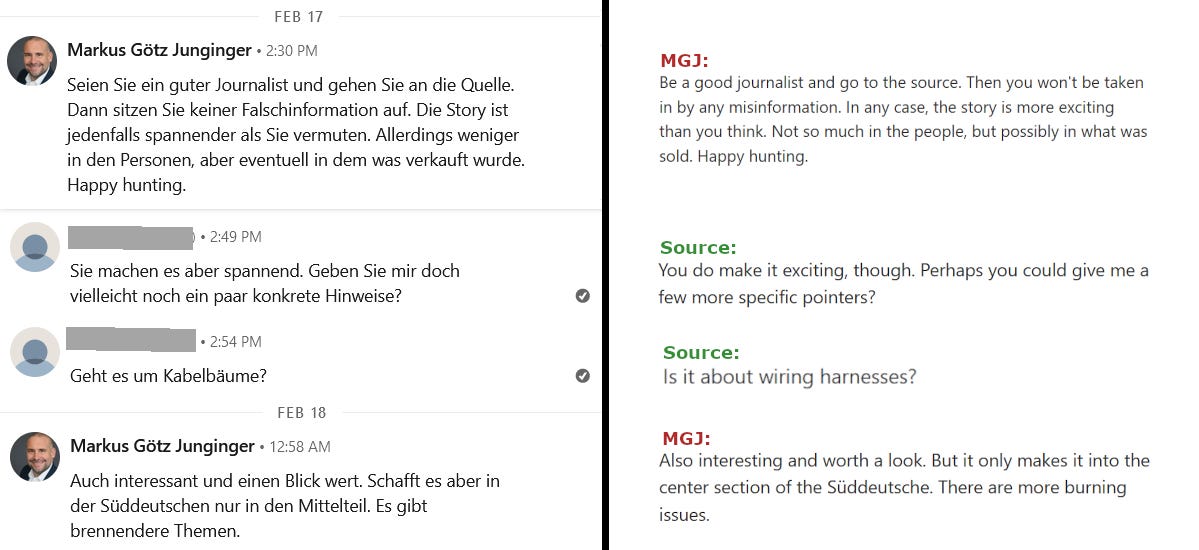
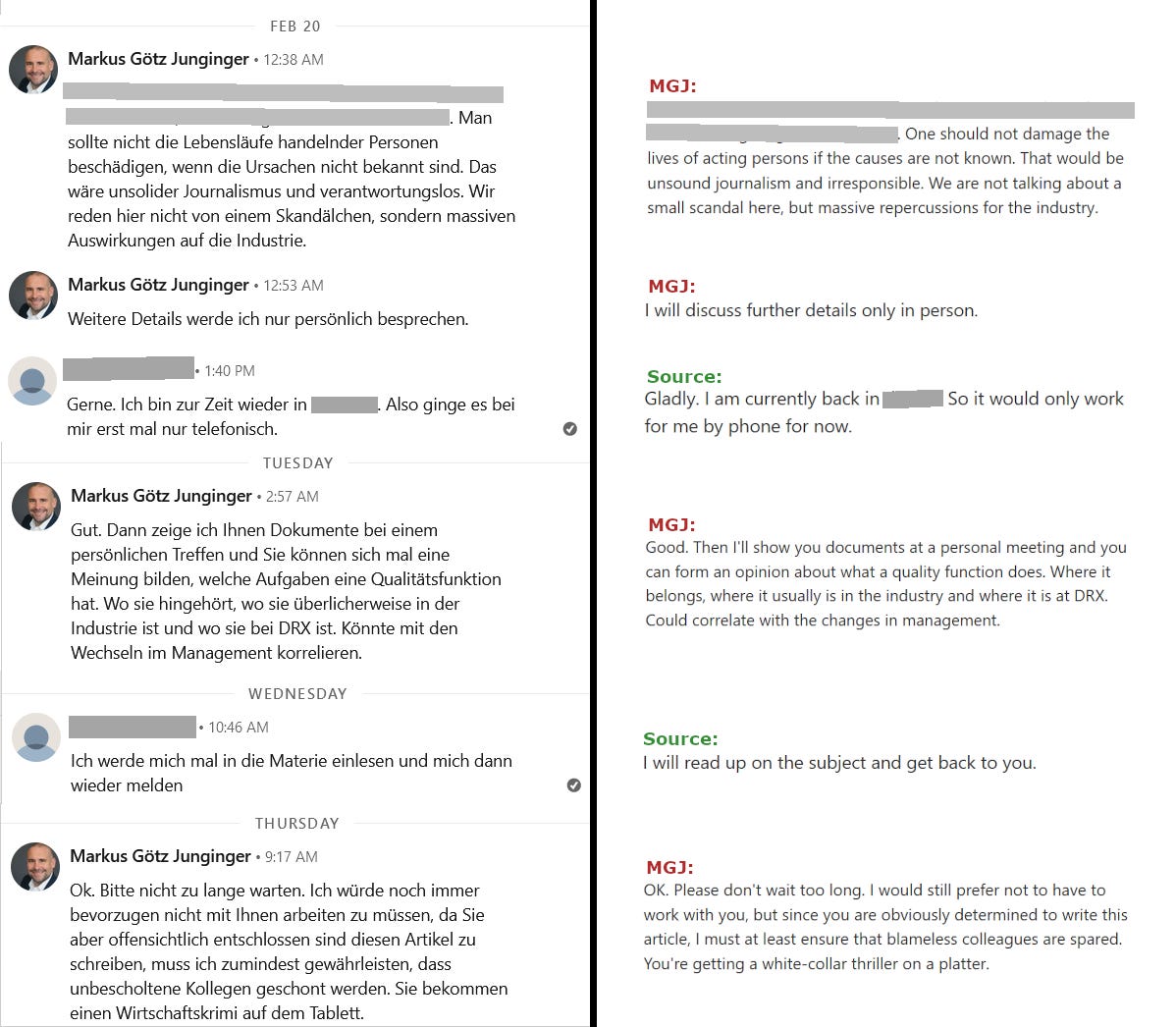
The Draexlmaier Group is a major automobile parts supplier worldwide for a number of major car manufacturers. This information from the CTO, if true, throws up a number of important questions for Dräxlmaier’s customers and the automobile economy at large: Do all Dräxlmaier parts already delivered to customers now have to undergo additional quality control? How many vehicles are affected? Will there be supply bottlenecks for wire harnesses, which will once again lower car production like after the beginning of the Ukraine war? Will there be large recalls? Can any major vehicle defects in recent years be traced back to the scandalous parts quality the Draexlmaier CTO referrred to?
Conflict of interest statement: The author of this article does not directly or indirectly hold any positions in the companies mentioned in this article, or their debts.
This blog will be updated with new developments and notifications will appear on the Twitter account https://twitter.com/FakePhD_reveal
Emails can be sent to internetsecrets@duck.com
Update 1: March 13, 2023 A local news article was posted in the Landshuter Rundschau featuring the C-suite members of Draexlmaier Group headquarters honoring long-time employees for their hard work. Notably absent from the line-up: Dräxlmaier CTO Markus Götz Junginger. Nothing definitive can be deduced about this per se but it might be a first indication.
Update 2: March 26, 2023 It has come to my attention that Markus Götz Junginger now claims he later got another PhD, and that the purchase of his fake degree is therefore irrelevant. Fact is he bought the degree in 2002 and that he has used his fake degree since at least 2004 (link). So if true, he must have been enrolled in the legitimate PhD program when he purchased the fake one for $1281. I’ll leave it to others to judge how credible this excuse is. I do have non-public information from a former co-worker of his at the time that he was not enrolled in a legitimate PhD program at the time.
Update 3: March 27 2023 CTO of Dräxlmaier Markus Götz Junginger has been removed as an executive from the corporate website. His last public appearance for the company was on March 10th, his absence from an important event was noticed March 13th. And while I didn’t check the last few days, he is definitely not on the website today. Safe to say he’s been let go. The video is also receiving a lot of traffic from Landshut and Munich sources, so it is likely the news has been shared internally at Dräxlmaier. The official departure statement is out and it sounds dry and minimal. They do use his fake doctorate, which has not been used in any recent Dräxlmaier social media posts. Link
Update 4: March 29 2023 German auto industry weekly Automobilwoche has run this story on the frontpage of its web edition. Link to the story (paywall).
Update 5: March 31 2023 Automobilwoche pulled the article. No surprise as Dräxlmaier is known to issue threats. The company has also struggled with a bribery issue. In light of that I have reproduced a copy of the article below. Totally related: Upstart auto manufacturer Fisker is hiring aggressively. https://fisker.wd1.myworkdayjobs.com/Fisker_Careers




